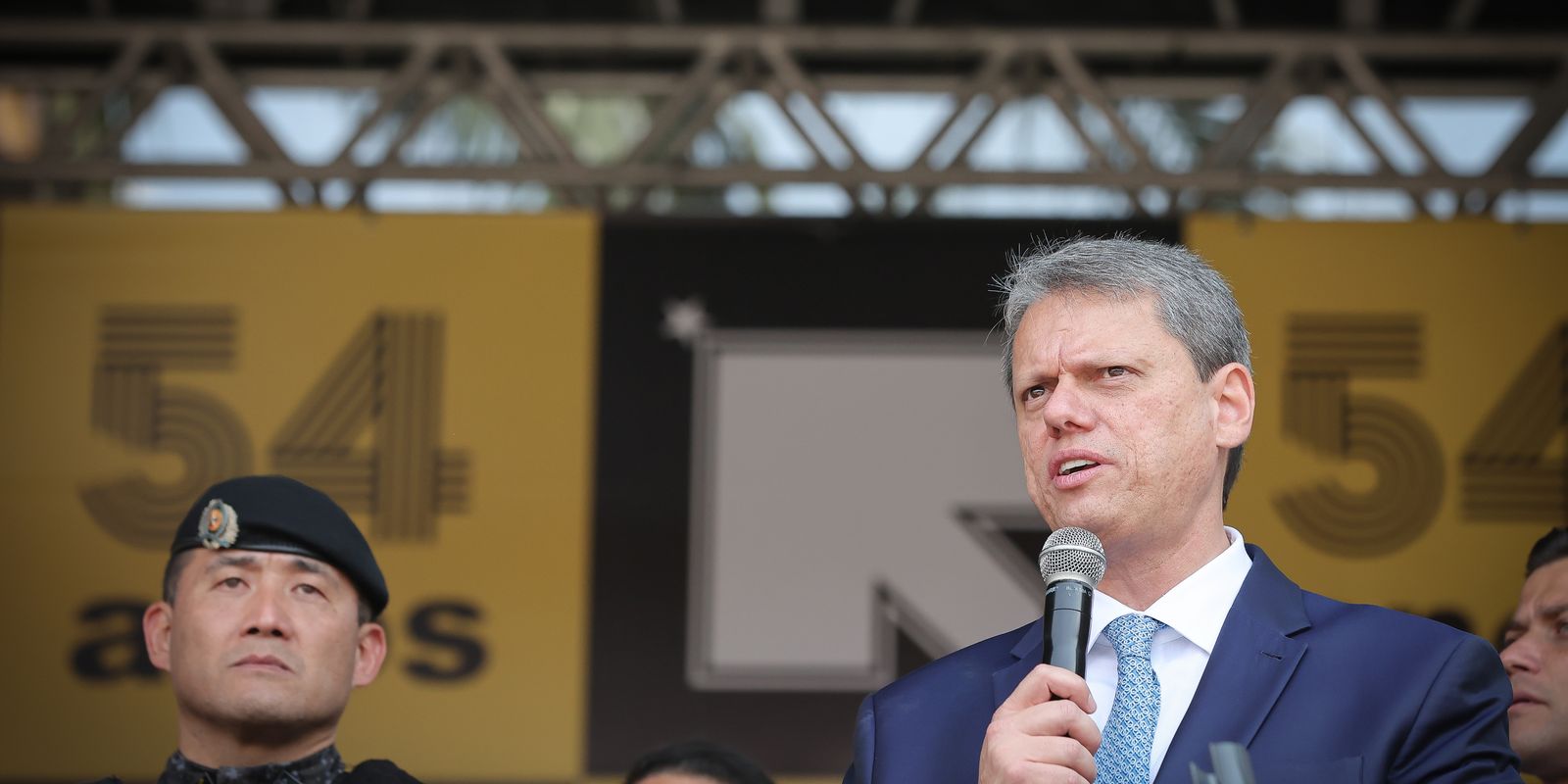The governor of São Paulo, Tarcísio de Freitas, acknowledged that his speech in the area of public security had an impact on the increase in police violence in the state. At an event on Friday night (7), the governor stated that when the direction is wrong, the consequences are wrong. Tarcísio’s speech comes amid a growing series of allegations of abuse of power and homicides committed by police officers in the state of São Paulo and recorded on cameras.
“The mistakes we make are reflected. And there are times when we have to stop to think, do a deep reflection and see where we are going wrong. Why are we making mistakes? Where did we go wrong in the speech? And then I agree with Professor Joana, our speech has weight. And, sometimes, if we make mistakes in our speech, we give the wrong direction and we have the wrong consequences. And this is easy to see today,” he said at an event at the Brazilian Institute of Education, Development and Research (IDP), in the capital of São Paulo.
Tarcísio referred to professor Joana Monteiro, coordinator of the Center for Science Applied to Public Security at Fundação Getúlio Vargas (FGV), who had spoken before him. According to her, the authorities’ rhetoric has a preponderant effect on police officers and populist speeches about the use of force end up turning against the troops themselves.
“What you say matters a lot, absurdly. The message you send to people and the troops has an effect, sometimes, much greater than any technological device. The police officer at the top is perhaps those who suffer most from this. And populist speeches that force can only be used, the one who suffers most from this is the police officer at the front, because he will fall and he will be the one who will be held criminally responsible afterwards. It’s his life that will end if that happens,” he said.
The governor also admitted that he does not have answers on how to balance his speech so that it does not appear to be a “safe conduct” for police officers and, at the same time, ensures that safety standards are complied with. “How to modulate the discourse to guarantee, in fact, legal security, but also compliance with standards, compliance with operational procedures? How can we not allow lack of control? How can I make it clear that there is no safe conduct? So, notice that I have, after all, a series of doubts. I have no answers.”
The governor’s position has changed since the beginning of the year. In March, Tarcísio had stated, when asked about the increase in police violence in Baixada Santista, that he did not “care” about the allegations that abuses were taking place in the conduct of Operation Verão, launched by the Military Police on the coast. The number of people killed by police officers on duty in the region had increased more than five times in the first two months of the year.
“Honestly, we are very calm about what is being done. And then the people you can go to the UN [Organização das Nações Unidas]you can go to the Justice League, no matter what, I don’t care,” he told reporters.
Cameras
Tarcísio once again said that he regrets his position on the use of body cameras by police officers. Since the beginning of his term, in 2023, the governor was against the use of the equipment.
“The camera policy is a policy that I personally regret a lot about the reactive stance I had back then. This stance comes from the perception that it could take away the agent’s legal security or even cause hesitation at the time he needed to act.”
“And today I realize that I was wrong. Today I realize that it helps public security agents, I realize that it is a factor of containment and we do need containment”, he said.
Research already showed, in the first year of the governor’s term, that, after the São Paulo Military Police started to adopt portable body cameras on the uniforms of some agents, the lethality caused by police officers on duty fell.
Research by the United Nations Children’s Fund (Unicef) and the Brazilian Public Security Forum (FBSP), released in May 2023, showed that, after adopting the device, the drop in police lethality was 62.7% in the state, going from 697 deaths in 2019 to 260 in 2022.














